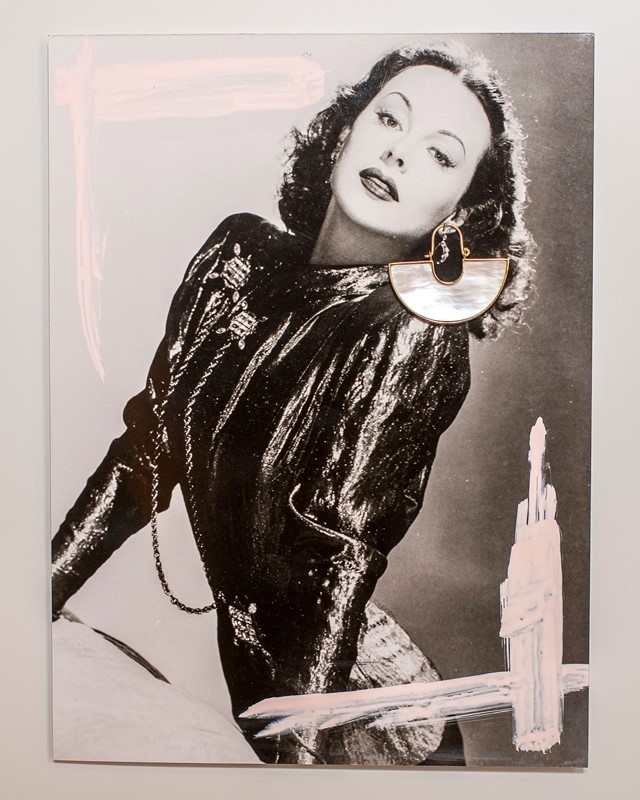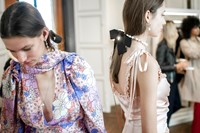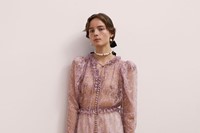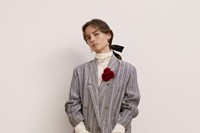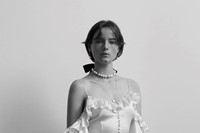Piotr Krzymowski's work explores the temporal nature of Polish film posters, post-internet culture and, in a new collaboration with designer Magda Butrym, Spring/Summer 2018 fashion
Who? London-based Polish artist Piotr Krzymowski is a Central Saint Martins graduate with a multifaceted approach to fine art. Riffing off found materials – from old fashion photographs to strips of used film, newspaper cuttings, Polish film posters and video footage – and analogising elements of the digital world, Krzymowski is well versed in the repurposing of material. “One of the words I use to describe my work is ‘revisiting’,” he explains. “So I like to think of myself as an artist who revisits both contemporary and archival material and gives it new life and new importance by putting it in the context of the contemporary world.” Krzymowski taps into his adolescent experience of imagery, recalling his father at home in Poland teaching him to load an old Zenit camera, and the carefully curated photo albums they’d flick through at the weekends. His love of analogue imagery – both its choreographed content and the tactile experience of looking at a photograph – has been hammered into his work in the wake of social media and contemporary documentation.
What? Krzymowski’s works span collage, sculpture, installation and film, with each piece melding readymade source material into art anew. His work 29.10.17, 1:51PM - 30.10.12, 1:51PM is an hourglass, built to the specificities of data collected from one of his Instagram stories. Entranced by the impermanence of social media – like the 24-hour timescale of an Instagram story, as drawn on for the piece’s title – he filled the timer with grains of sand equal to the number of pixels in the image, and coloured them according to the picture’s median hue, collected from running the photograph through a scanning program. The result is a tangible, eternal and permanent depiction of a moment long since disappeared; two time-scales entwined.
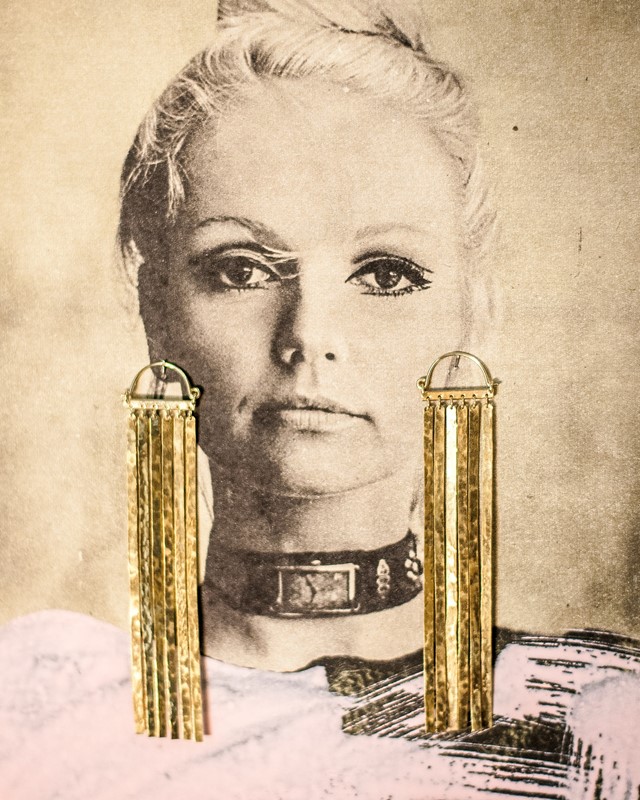
Krzymowski’s raison d'être is to collage varying contexts. In daubing 60s Polish film posters with lashings of paint and splicing them together, the artist layers up metaphor, offering a handmade re-reading of analogue archive imagery. “Working with found footage is really special,” he explains. “Because, despite the romantic and nostalgic aspect, there’s something really magical about working with an idea that has a history. Something that is not fabricated by me but has been made by someone else – that’s most exciting for me. I love photography from the 60s because the quality is very different to a digital image – often more cinematic. Today we are used to taking as many pictures as we want and we store them in the iPhone, in our pockets.” His admiration for analogue in a digital age is a connecting thread throughout each of his wildly varying works.
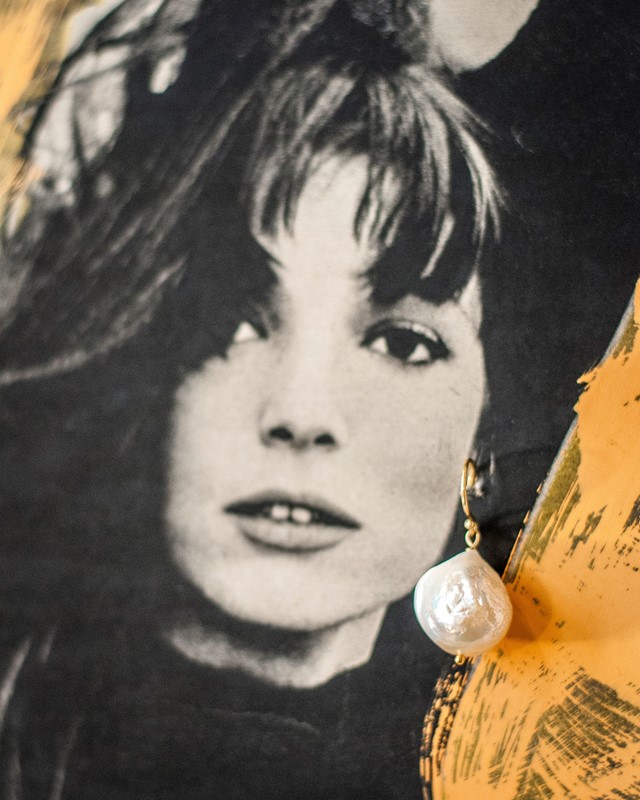
Why? In his latest artworks for Magda Butrym, Krzymowski showcases the fashion designer’s Spring/Summer 2018 jewellery collection, while lending his repurposed imagery yet another layer of narrative. By attaching Butrym’s jewels to the printed ears of his film stars and then scanning them, he creates a compression of layers – those of a sculpture built from analogue imagery, recontextualised by both paint and jewels and then flattened into a digital two-dimensional rendering. This compendium of contexts fits perfectly with Butrym’s designs, which contain many historical references. “My work is structured around the clash of vintage vs modern,” the designer says. “It’s always research-driven, since I love to explore how fashion shaped the spirit of women across time.”
Having been moved by what she refers to as the “flamboyance and highbrow femininity” of Victorian gowns, Butrym reworked Victorian elements – pearl sleeve details, embroideries, elaborate cuffs and necklines – into modern proportions, cuts and hem-lengths for her S/S18 collection. “I would say that my creative process is a lot about reinterpretation of vintage elements but combined with a modern touch,” she explains. The resulting collaborative works between Butrym and Krzymowski is an alchemy of two contrasting practitioners, compatible in their love of layering. “Her clothes are like collages,” explains Krzymowski of Butrym’s nuanced references and lightness of touch. “There might be a print that seems very modern, there’s a sleeve that has a reference to costume design and then you know period clothing, but then there’s something modern like the length of the sleeve. So she really keeps revisiting these elements of the garment collaging them together: there’s an aspect of montaging things, of bringing different elements together.”
